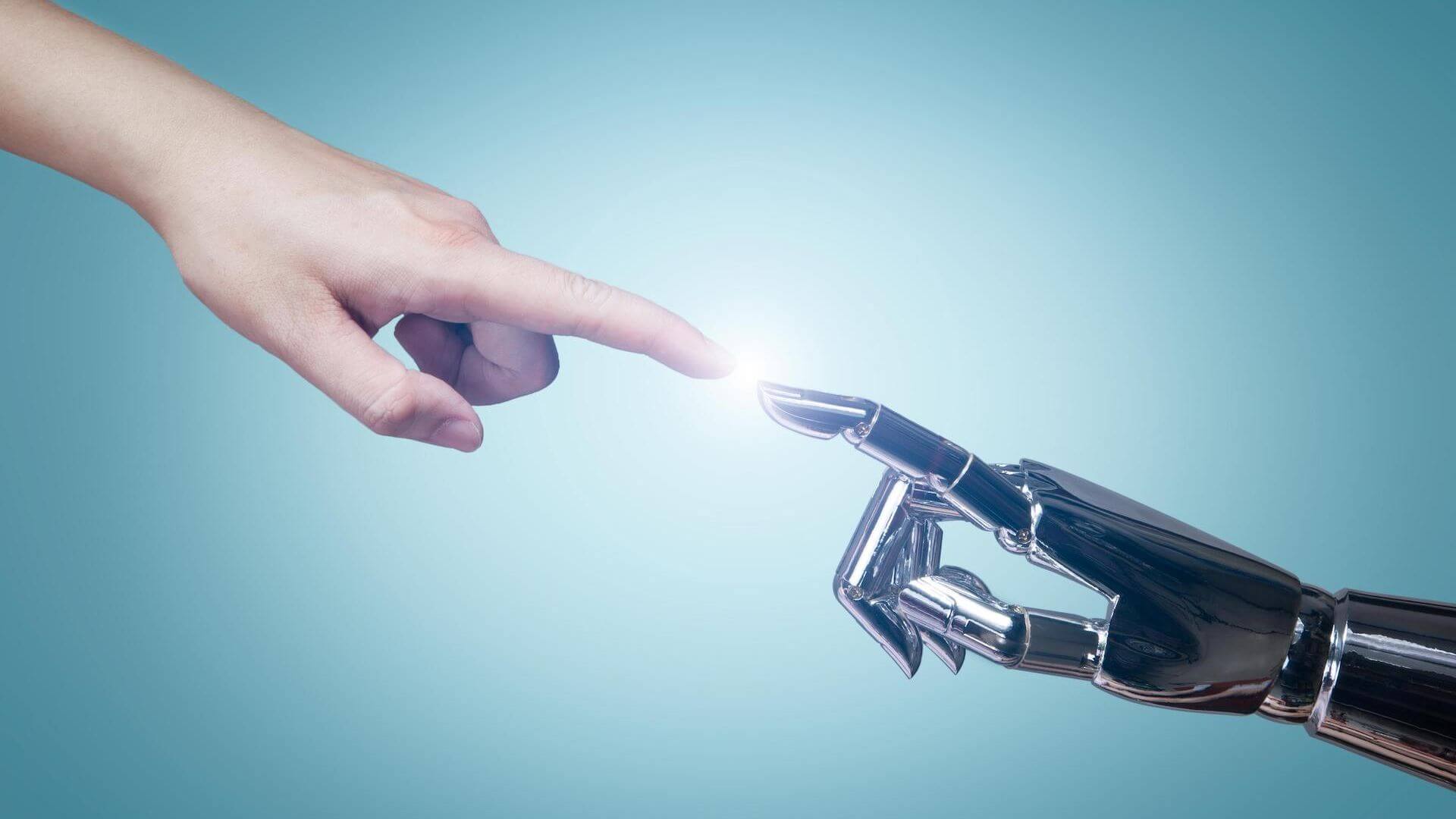Over the last six weeks, ChatGPT, an open-access AI model for “large language learning,” has dramatically entered American culture. The AI will respond to queries frequently with a human-like voice and perform more complex composition instructions. Although it’s marketed as a breakthrough in the sector, this is a familiar technology. It is the third iteration of the source model, which was introduced in 2015. Such models have existed previously, and internet search engines use much of their code.
ChatGPT is a notable contributor to the constantly evolving field of artificial intelligence. This AI model offers more than just technological advancements and is a reliable advocate for holistic wellness. It’s essential to understand how ChatGPT can have a positive impact on mental health and contribute to a more comprehensive approach to well-being.
Empowerment is rooted in knowledge. Dr. Bart Rademaker is committed to equipping you with the necessary tools and insights to make informed decisions regarding your well-being. His expertise spans from nutritional education to holistic practices, enabling you to take control of your health and happiness.
What is ChatGPT?
With ChatGPT, an AI-powered natural language processing tool, you may converse with the chatbot in a manner akin to that of a human and accomplish much more. The language model may help you write emails, articles, and programming code, and provide answers to your inquiries.
How Does ChatGPT Work?

Since the program is connected to the internet as a database, it can quickly handle information from a large and nearly infinite reservoir. However, it has been demonstrated to make an absurd number of errors (1)(2) and frequently needs to be more accurate during synthesis. Experts widely observed that Microsoft’s public debut of their AI platform had several factual errors, to the point that fact-checking was neglected (3), and the presentation was ridiculed.
One of the most creative and remarkable science fiction authors of his time, Ted Chiang, firmly believes that natural science should inspire his novels and that public scientific education should be promoted. He provides a helpful analogy of the operations of the programs (4):
Compressing a file requires two steps: first, the encoding, during which the file is converted into a more compact format, and then the decoding, whereby the process is reversed. If the restored file is identical to the original, then the compression process is described as lossless: no information has been discarded. By contrast, if the restored file is only an approximation of the original, the compression is described as lossy: some information has been discarded and is now unrecoverable…
…a common technique used by lossy compression algorithms is interpolation—that is, estimating what’s missing by looking at what’s on either side of the gap. When an image program is displaying a photo and has to reconstruct a pixel that was lost during the compression process, it looks at the nearby pixels and calculates the average. This is what ChatGPT does when it’s prompted to describe, say, losing a sock in the dryer using the style of the Declaration of Independence: it is taking two points in “lexical space” and generating the text that would occupy the location between them. (“When in the Course of human events, it becomes necessary for one to separate his garments from their mates, in order to maintain the cleanliness and order thereof. . . .”).
What Makes ChatGPT So Special?
ChatGPT is a conversational interface that can deconstruct and organize grammar in intricate yet natural-sounding ways. It is because it was trained during its design phase using real input from a wide range of volunteers in many professions. It has been hailed as a revolutionary change that will impact all aspects of our lives, including business and customer service, as well as fields like education and medicine. But really, how can a chatbot on a computer accomplish that?
To put it simply, we’re overreacting. Perhaps not to the possibility of social unrest, since we already know businesses will stop at nothing to boost profits—Google has already laid off 12,000 workers to transition to an AI-based economy (5)—but certainly to ChatGPT’s potential. The issue, though, is not with Chat GPT’s capabilities per se but rather with how users view them.
Will ChatGPT Replace People’s Jobs?

Unsurprisingly, market analysts, educators, legal assistants, graphic designers, financial planners, and marketing experts (6) are among the professions these AI algorithms are expected to replace. It’s not that the software is more adept at these tasks; instead, there is an issue with the structure of the labor force in this nation. Furthermore, the program’s success in a legal course, an MBA exam, and a medical licensing exam (7) confirmed what I already knew: there is a problem with higher education. Specifically, most higher education pedagogies emphasize rote memorization of concepts more than actual learning and application. It contributes to the fact that US college educations are no longer as good as those in other countries.
It also highlights a significant issue with how our culture presents and interprets data. Yes, sensationalization in the media plays a factor, but so does the same political technique I’m referring to—introducing concepts to regulate emotions. Just stop for a moment to consider that 15 billionaires own every significant “reputable” news website in the United States with any political slant (8).
Additionally, media coverage has become increasingly sensationalized, if you’ve been observing. From straightforward reporting and analysis, the pieces have shifted to an exaggerated moralization of technology, with each one asserting some form of catastrophe for society. However, this makes sense because click- or read-based advertising provides nearly all of the funding for our news media, regardless of political affiliation. You guessed it—the stories that generate the most emotion are the ones that receive the most clicks and reads. Over the past 70 years—possibly longer, but that’s the earliest peer-reviewed, optimally controlled research I could find—behavioral psychologists have repeatedly shown that human behavior is almost entirely emotional in nature. Despite what we tell ourselves, humans are not rational by any stretch of the imagination.
The American news media seems to be the driving force behind the fear of AI chatbots. However, professionals such as researchers, writers, and teachers do not share this concern as they believe that this technology cannot outperform them. In fact, it’s easy to spot the AI bots in practice as they often make mistakes and inaccuracies. They struggle with math problems beyond a 6th-grade level and can only solve problems that have been previously searched on Google (such as 13647485+81111881). Their writing is also formulaic and needs the unique flair that individual writers possess. This is because AI programs lack human intelligence, and they piece together information that humans have compiled or created in a space-saving way. They fill in the gaps based on their understanding of sentence structure and commonly associated concepts in a subject.
Frequently Asked Questions
Will ChatGPT Replace Google?
OpenAI created ChatGPT, a language model, whereas Google is a search engine and technology business with various offerings. Although ChatGPT might offer information and answers to queries, it is meant to do something other than take on the role of Google.
Will ChatGPT Replace Programmers?
Although the AI-based tool could make it easier for you to generate code blocks more quickly, a knowledgeable developer will be needed to link those blocks in an orderly manner to get the required outcomes. Therefore, ChatGPT or any other AI tool can significantly boost the total productivity of human developers, but it won’t replace them.
What is the Difference Between Search Engines and ChatGPT?
Google and ChatGPT are two distinct technologies with different uses in mind. While Google searches the internet and delivers appropriate results for a user’s query, ChatGPT produces text and responds to inquiries in natural language.
Holistic Wellness Doctor

Although ChatGPT can be a helpful tool in many situations, we should try to prevent its usage if it will be used to boost profits at the expense of customers, employees, or workers—which it will do.
As we navigate the intersection of technology and holistic wellness, it’s evident that ChatGPT presents opportunities for fostering mental health support in innovative ways. By embracing the potential synergies between AI and holistic practices, we pave the way for a future where technology complements, rather than replaces, the holistic approach to well-being.
Holistic wellness doctor Dr. Bart Rademaker’s dedication to advocating for stem cell therapy and his faith in medicine highlight the significant positive effects a holistic approach to health can have on our lives. Furthermore, his commitment to enabling doctors emphasizes the value of cooperation and knowledge exchange in this dynamic industry.
- https://www.digitaltrends.com/computing/google-rushes-chatgpt-rival-among-a-round-of-12000-layoffs/
- https://simonwillison.net/2023/Feb/15/bing/
- https://simonwillison.net/2023/Feb/15/bing/#gaslighting
- https://www.theverge.com/2023/2/14/23599007/microsoft-bing-ai-mistakes-demo
- https://www.newyorker.com/tech/annals-of-technology/chatgpt-is-a-blurry-jpeg-of-the-web
- https://www.businessinsider.com/chatgpt-jobs-at-risk-replacement-artificial-intelligence-ai-labor-trends-2023-02
- https://www.businessinsider.com/list-here-are-the-exams-chatgpt-has-passed-so-far-2023-1
- https://www.forbes.com/sites/katevinton/2016/06/01/these-15-billionaires-own-americas-news-media-companies/?sh=40cff8b7660a
- https://www.theverge.com/2023/1/28/23575919/microsoft-openai-github-dismiss-copilot-ai-copyright-lawsuit
Want to learn more about Dr. Rademaker?
- Dr. Bart Rademaker
- 813-884-0160
- [email protected]
- 334 East Lake Road Palm Harbor, Florida 34685


